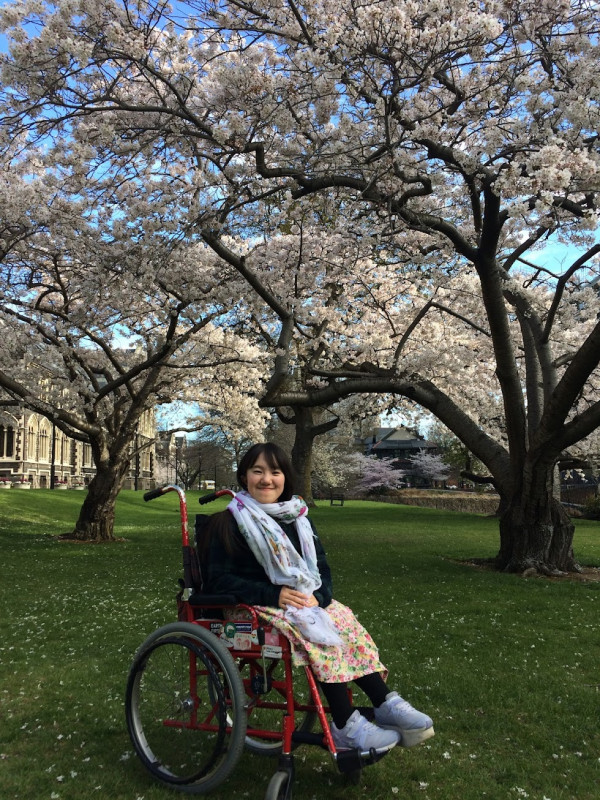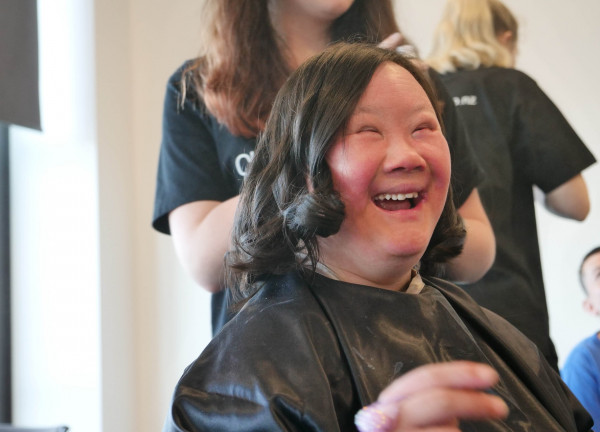Lena Zhang Harrap’s death has reignited conversations about violence in Aotearoa. Re: reached out to affected communities to discuss how Lena’s death impacted them, and the important conversations it raised.
While on a walk less than a kilometre from her home in Mount Albert, Auckland last week, 27-year-old Lena Zhang Harrap was sexually assaulted and killed.
As a woman of colour with Down syndrome, Lena’s death has shaken others who belong to these groups and reignited discussions about violence towards them in Aotearoa.
Umi Asaka is a disability researcher at the Donald Beasley Institute in Dunedin. As a disabled woman of colour, she says the death of Lena was gut-wrenching for her, and one she has spent her life in fear of.
Research shows disabled adults are more likely to experience physical and sexual violence than the New Zealand average.
“The first thing that came to my mind was, ‘I could have been her, or could be next time’,” Umi says.
“[Disabled people] are not the only ones killed in our society, but we are one of the most vulnerable for sure,” Umi says.

Umi Asaka
Umi has a condition called Osteogenesis Imperfecta, also known as brittle bone syndrome.
“My condition is that I break my bones easily. I can’t really fight back if I need to. So there are definitely moments in my life that I feel unsafe.”
“Just a few weeks ago when I was walking down the street, some guys followed me. I use a power chair, and eventually he caught up and said ‘I was having a competition with you to see how fast you can go’.
“Even if he thinks that is funny, he has to understand how intimidating that was for me.”
That type of behaviour puts the burden on women, people of colour, and disabled people to keep themselves safe, Umi says. But, that’s wrong - they are societal issues that need to be addressed and not the responsibility of victims, she says.
“We need to be asking the question about what kind of message exists within the community that leads to young, disabled women being killed.”
According to research from the University of Auckland, disabled women are more likely to experience violence from strangers and people they know. Disabled women are almost twice as likely to experience violence from romantic partners.
Umi sees there are underlying ideas in society that disabled women’s lives are less valuable, or easy targets. The root of these ideas need to change to ensure safety, Umi says.
“That is not our responsibility to change. No matter how much I say my life matters, somebody might still kill me. We need others to challenge that messaging with each other.”

Lena Zhang Harrap. Credit: StarJam
In addition to speaking with Umi, Re: also reached out to intellectual disability advocacy groups People First and the New Zealand Down Syndrome Association. While both felt more time was needed to process Lena’s death before discussing the changes towards a safer society, the New Zealand Down Syndrome Association did issue a statement.
“The reality is that this horrific incidence is an anomaly in New Zealand and we know that a person with a learning disability is safer in an inclusive community where they can fully participate in all aspects of life,” executive officer Zandra Vaccarino said.
It is important families not give into the fear and anxiety, and continue “giving their children with Down syndrome the independence any person deserves,” Vaccarino said.